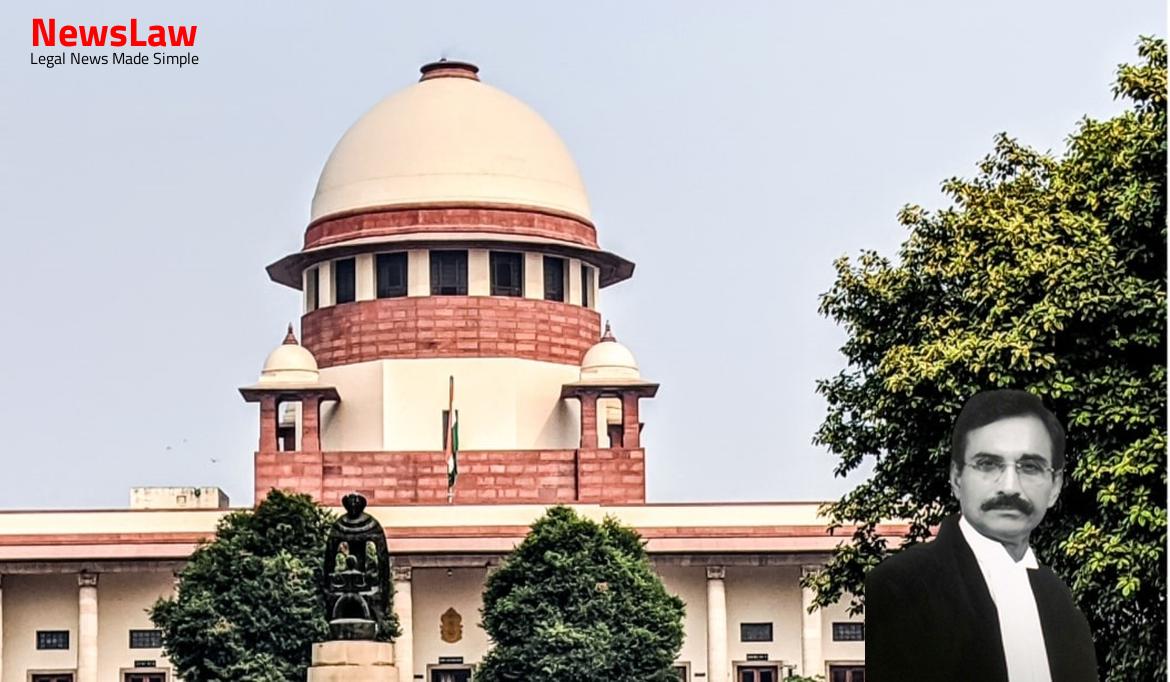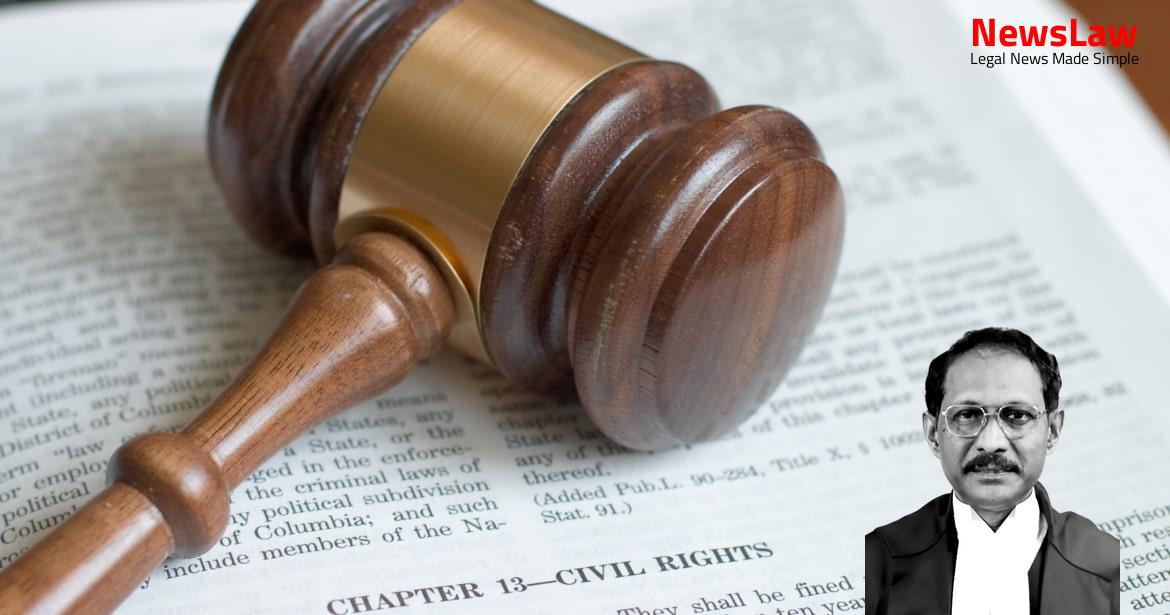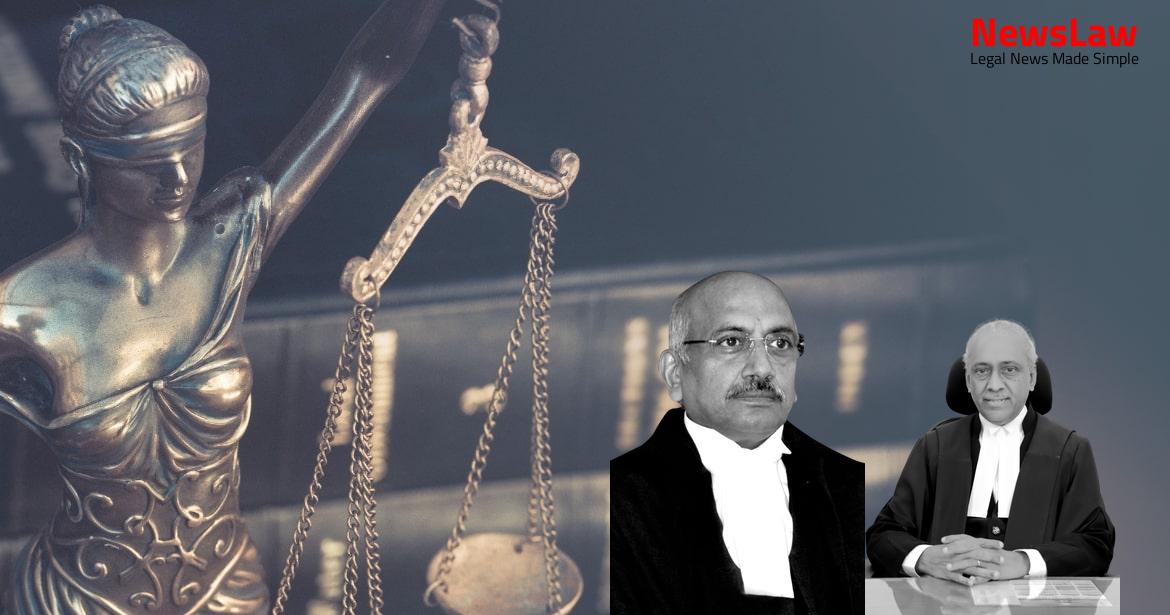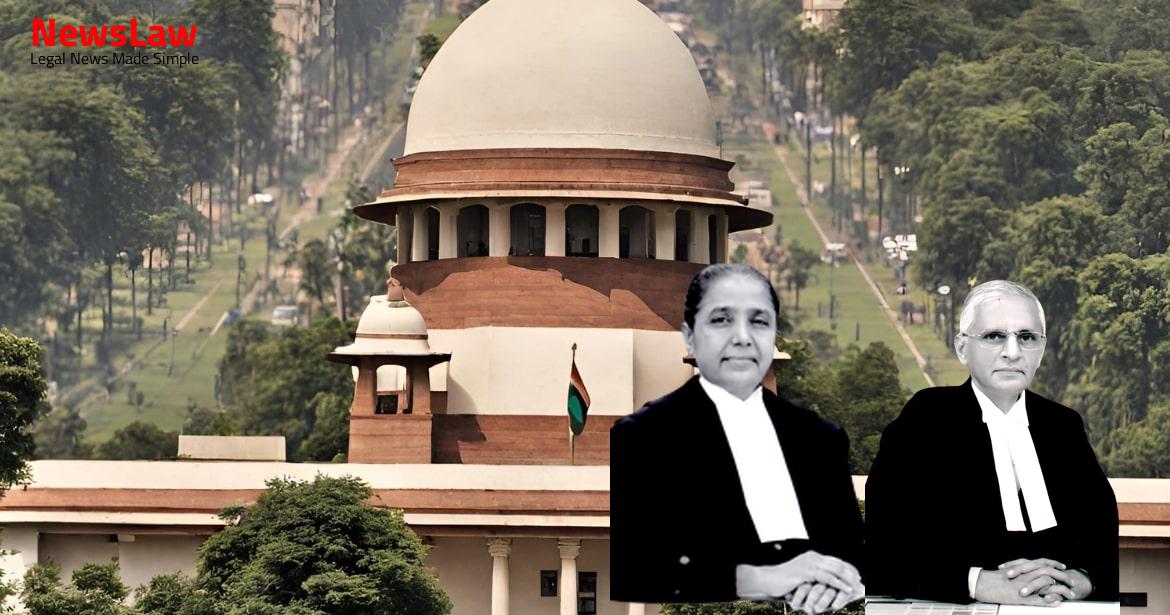Delve into the intricacies of a fascinating legal case that revolves around the allocation of registration marks for vehicles and the associated fee structure. The court’s thorough examination of relevant sections of the law demonstrates the complexities surrounding state authority in charging fees for specific services in the realm of vehicle registration. The case exemplifies the importance of statutory interpretation and the delineation of powers between the central and state governments in this context.
Arguments
- The petitioner challenged the amendment incorporated in the State Rules of 1994 by a notification dated 15.02.2001.
- The petitioner contended that splitting an indivisible process, by drawing a distinction between ‘allotment’ of numbers by the Centre and their onward assignment by the state registering authority, along with charging a separate fee for the latter, was impermissible.
- The petitioner argued that the absence of specific provisions enabling the state to prescribe amounts as fees for particular enumerated services showed Parliamentary intent to exclude the state from levying a fee for ‘assigning’ a registered number.
- The petitioner approached the High Court contending that allotment of a particular number on payment of a fee was contrary to and inconsistent with the provisions of Section 41 and the powers conferred on the State Government under Section 65 of the Act of 1988.
- The registering authority rejected the application for allotment of registration number ‘MP -KL- 4646’ stating that the required fee had not been paid by the petitioner.
- The petitioner argued that the State Rules were framed by virtue of the powers conferred under section 65 of the Act, empowering the State to make rules with regard to issue or renewal of certificate of registration, as well as amounts to be charged for such registration.
- The petitioner contended that the rule, Rule 55A, was ultra vires the provisions of the Act.
- The petitioner argued that under Section 41(6), the responsibility of assigning registration mark to motor vehicles lies with the State Government.
- The petitioner claimed that the High Court’s conclusions were erroneous and pressed for the allotment of the desired registration number.
- The petitioner pointed out that the Central Government has the authority to prescribe the manner and form in which the registration mark of vehicles is to be displayed under Section 64(d) of the Act.
- Section 40 of the Act specifies that vehicle registration is undertaken by the registering authority of the State Government where the vehicle owner resides or has a place of business.
- The Union’s position, supported by Mr. Vikramjit Banerjee, emphasizes the requirement under Section 39 of the Act that every motor vehicle operating on roads must be registered.
- The term ‘registered’ is defined to mean an act of assigning or devoting something for a specific purpose or to a person.
- Reference is made to the case of Jantia Hill Truck Owners Assn. v. Shailang Area Coal Dealer & Truck Owner Assn.
Also Read: Legal Analysis of Claim for Loss of Profit in Delayed Contract
Analysis
- The assignment of registration marks to vehicles is the duty of the concerned registering authority of the State Government as per Section 41(6) of the Act.
- The High Court concluded that Section 211 was not applicable in the context of charging fees for registration numbers as Section 41(2) occupied that field.
- Rules under Section 65(2) to charge fees were also deemed invalid by the High Court using the same logic.
- The assigning of numbers by the registering authority, though a late step in the process, involves a service to the public.
- The allocation of registration marks is a responsibility of the State Government as established by the Act and Rules.
- Various provisions empower the State to collect fees for specific functions related to vehicle registration.
- The power to prescribe fees for reserving specific registration numbers is within the authority of the State Government.
- Specific provisions like Sections 41(13), 47(7), 49(4), and 50(5) recognize the State’s power to charge fees.
- The State’s authority to levy fees is to cover contingencies not explicitly mentioned in the Act, where services are rendered.
- Section 211 allows both the Central and State Governments to levy fees for various services provided under the Act.
- The State’s power to assign registration marks is separate from the Union Government’s authority.
- The Central Government has already specified fees for vehicle registration under Rule 81 of the Central Rules.
- States are authorized under Section 65 to make rules on matters related to vehicle registration not covered by Section 64 of the Act.
- The registering authority assigns a registration mark consisting of letters and figures allotted by the Central Government.
- The registration mark must be displayed on the vehicle as prescribed by the Central Government.
- The Central Government can make rules regarding various matters related to registration, including application forms, issuance of certificates, and display of registration marks.
- The owner of a motor vehicle must register it with the registering authority in whose jurisdiction they reside or where the vehicle is normally kept.
- The registration certificate contains specified particulars and is maintained in a register by the Central Government.
- The Act specifies the necessity for registration and the types of motor vehicles must be notified by the Central Government.
- Grant of mining leases entails consideration in the form of surface rent, dead rent, and royalty
- Powers conferred by statute do not depend on the existence of rules unless expressly provided in the statute
- Rules for regulating mining leases must include provisions for payment of surface rent, dead rent, and royalty by the lessee to the government
- Central enactments empowering states imply the power to charge lease rent or royalty
- Autonomous districts have executive powers necessary for administration vested in the District Council
- State or state-controlled agencies are entitled to charge a reasonable amount for services rendered for the provisions of a Central Act
- The impugned Rule 55A was found to be within the scope of powers delegated to the state and related to its functions under Section 41(6).
- The state could legitimately claim a fee for its functions as per Rule 55A.
- The court acknowledges the assistance of Mr. Manoj Swaroop, Senior Advocate, for acting as an amicus and presenting arguments in support.
Also Read: Public Declaration Requirement in Marriage under Hindu Marriage Act
Decision
- The appeal has been allowed without an order as to costs
- The impugned judgment has been set aside
- The appeal succeeds based on the provided reasoning
Also Read: OCI Cardholders’ Rights and Retroactive Notifications
Case Title: THE STATE OF MADHYA PRADESH Vs. RAKESH SETHI . (2020 INSC 506)
Case Number: C.A. No.-007074-007074 / 2008



